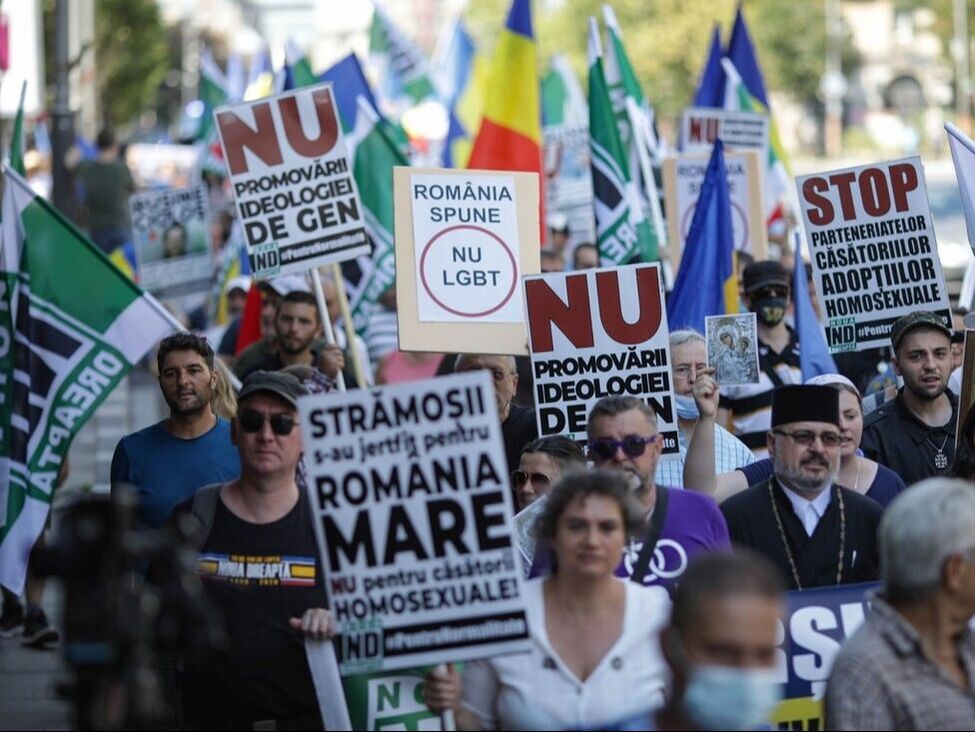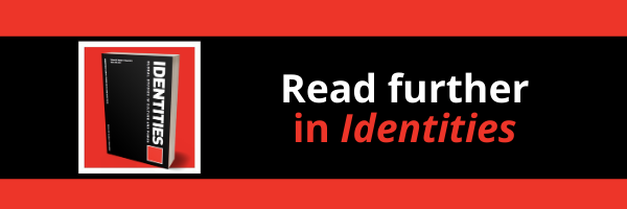|
|
|
In 2018, Romania organised a national referendum with the goal of defining in the Constitution that a family is composed of a man and a woman. Most of the parliamentary political parties openly supported the issue. The turnout failed to pass the 30% threshold needed for the referendum to be validated, but 93% of those who voted were in favour of this restrictive definition of family. It should be noted that the Romanian referendum was not an isolated case. Similar mobilisations around family and marriage issues have taken place throughout Central and Eastern Europe since the beginning of the 2010s (Croatia 2013, Slovakia 2015, or Slovenia 2015, for instance).
In our Identities article, ‘No populism’s land? Religion and gender in Romanian politics’, we analysed the way parliamentarians used religious symbols and contents within their speeches during the debates for the 2018 referendum. We focused our research on the parliamentary debates covering the adoption of the referendum in Parliament (2012–2018) and the follow-up period (2018–2020) to analyse the ways political actors conceive and represent religion and gender in contemporary politics.
Our decision to focus on Romania as a case study was based on a combination of four factors: (1) this is one of the most religious countries in Europe, making the Romanian Orthodox Church a key player in the making of politics on particular issues; (2) it is also a rather traditional country, where the diffused, traditional patriarchal model of family is predominant, (3) its people lived through a prolonged abortion ban (from 1967 to 1989) imposed by the communist regime in an attempt to increase the population, an experience that has remained fresh in the Romanian collective memory; and (4) the first referendum organised as a result of a citizen initiative was the 2018 Referendum on family.
In our analysis of the parliamentary speeches given by MPs in their support for a restrictive definition of family, we interpreted their discourses along three dimensions. In line with the literature on populist radical right, we called the first one the nativist dimension, revolving around the idea that foreign models threaten Romania’s homogeneity and survivability. Interestingly, the legitimacy of a restrictive traditional definition of the family is presented not only as a defensive strategy to counterbalance cosmopolitanism, but different MPs from across the political spectrum represent it as natural continuation with the norms and practices of the Romanian cultural (and religious) heritage of a nation state. In the words of a Social Democrat MP: ‘As Romanians, we define ourselves by Christian affiliation and family’. We labelled the second one the authoritarian dimension. Discourses included in this category present the traditional family as a direct continuation of an ordered and, hence, predictable society with gender-specific responsibilities. This emphasis on the need to maintain order in society referred not only to so-called pre-designed gender roles that defend members of the family, but also connect to the demographic reproduction of Romanians. A second Social Democratic MP declared: ‘For us, Romanians, the family is not just a lifestyle, it is the only interhuman relation that ensures the ideal environment for birthing, raising, and educating children, and the continuity of the Romanian people’. The authoritarian dimension also includes a vehement rejection of the diverse lifestyles of ‘out-groups’ that are perceived as incompatible with conventional norms and traditional customs (e.g. homosexuality). In this sense, the authoritarian themes correspond to the need to protect Romanians as the politically and socially dominant group. Values and norms that come from Western societies cannot be trusted since, according to a basic zero-sum game, their gains correspond to the losses of the Romanian community. Lastly, there is the populist dimension, built around the idea that support for the traditional family is the only acceptable position because it represents the position of the majority. According to one Liberal MP, ‘98% of the country’s population declares itself to be Christian. Christian identity must define us. Do we keep our identity, or do we give in to external pressures?’ This line of argumentation valorises sub-themes that converge towards the assumption that there is a superior force in the sovereignty of the majority and, hence, the more the majority can decide in the political arena, the more democracy there is. This interpretation clearly deviates from the principle of liberal democracy and emphasis on the rights of individuals and minorities. These are the three dimensions of radical right-wing populism we have identified in parliamentary speeches, and they converge on support for a conservative definition of family, support for a conservative view of gender roles, and understanding homosexuality as a threat to the traditional family, to Romanian children and to the survival of the Romanian nation. Equally important, the populism observed in the discourses of the MPs shows signs of morphing into an anti-EU perspective. National NGOs opposed to the referendum as well as promoters of cosmopolitanism and multiculturalism have been accused of affecting the organic community by destroying its norms and values, and by reversing the meanings of the traditional concept of family. We have seen similar developments in countries such as Hungary or Poland, but those were countries with populist parties playing a more important role in national politics. The fact that we are seeing the same arguments in Romania, a country with a diffused, less structured and formalised populism, is a warning that we may be witnessing the coagulation of a regional anti-EU front that overlaps, at least in part, the three-decades-old division between Western and Eastern Europe.
Image credit: Octav Ganea (Inquam Photos), used with permission.
Blog post by Claudiu Tufiș, University of Bucharest, Romania, and Sorina Soare, University of Florence, Italy
Read the Identities article: Soare, Sorina & Tufiș, Claudiu. No populism’s land? Religion and gender in Romanian politics. Identities: Global Studies in Culture and Power. DOI: 10.1080/1070289X.2021.1953784
Explore other relevant Identities articles:
Hijack or release? On the heuristic limits of the frame of instrumentalization of religion for discussing the entanglements of populism, religion, and gender Imbrications of gender and religion in Nordic radical right populism [Open Access] The chronopolitics of national populism
0 Comments
Your comment will be posted after it is approved.
Leave a Reply. |
|
Explore Identities at tandfonline.com/GIDE |
|
The views and opinions expressed on The Identities Blog are solely those of the original blog post authors, and not of the journal, Taylor & Francis Group or the University of Glasgow.


